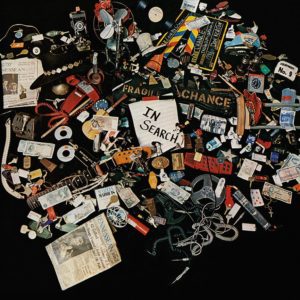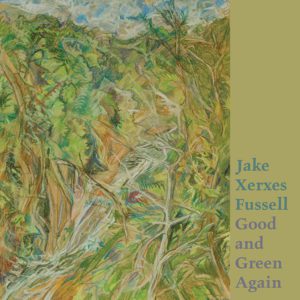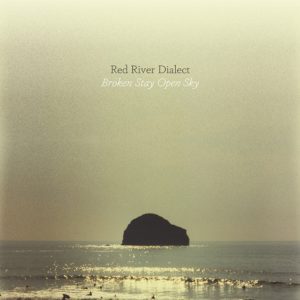Album Narrative
-

-

-
Photo by Brad Bunyea.
-

-
Photo by Brad Bunyea.
-

-
Photo by Brad Bunyea.
-

-
Photo by Brad Bunyea.
Like all things having to do with traditional music, there are multiple sources for these songs, many layers of transmission and interpretation. “Winnsboro Cotton Mill Blues” I heard from my friend Art Rosenbaum, who learned it from a Pete Seeger recording from the late ’40s. Seeger had picked it up from an older source, an unattributed singer at an industrial school for women in western North Carolina. I like thinking of the song as a sort of resistance piece sung created by overworked and underpaid textile workers, which it is, but I also love the sardonic humor and imagery: an inscrutable floor manager who’d “take the nickels off a dead man’s eyes / To buy Coca-Colas and Eskimo Pies.”
I first heard the Irish tragicomedy “Michael Was Hearty” via my pal Nathan Salsburg, guitar wizard and curator of the Alan Lomax Archive, who played me a YouTube video of an Irish Traveller and ballad singer named Thomas McCarthy, whose a cappella delivery of the song is striking and singular. I immediately wanted to commit the words to memory, but I had to come up with another way to perform it that worked for my way of singing, so I worked out a waltz arrangement on my guitar and taught it to my band. Some great imagery in there too: “High was the step in the jig that he sprung / He had good looks and soothering tongue”—don’t we all know somebody like that? This one dates to probably sometime around the end of the 1800s.
“Oh Captain” is my bastardized reinterpretation of a beautiful deckhand’s song recorded by the singer, composer, and musicologist Willis Laurence James for Paramount Records in the early 1920s, with piano accompaniment. It’s a very unusual recording. James spent much of his life collecting and interpreting and writing about African American worksongs, yet few have recognized his short, obscure stint as a recording artist. Turns out he was a trained singer who taught in the music department for years at Spelman College, whose library still holds his archive. I became fascinated with him and his work, so this song is my little homage to Dr. James.
In the mid-2000s when I was living in Oxford, Mississippi, I went to an estate sale at an antebellum house in town and found a first edition of Carl Sandburg’s famous 1927 book The American Songbag, which contains “Three Ravens.” Inside was an index card with a charming calligraphed “If found, please return to,” written by the banjo player and singer John Hartford, along with his Tennessee address. I’d been listening a lot to the music of Ruth Crawford Seeger, a member of the Seeger family of folk music fame, but also an important and influential avant-garde composer. Her music resides in that interesting place where modern abstract forms and traditional abstract forms collide. Her collection 19 American Folk Songs for Piano includes a wonderful minute-long version of “Three Ravens.” I couldn’t get enough of it, so I went back to my Hartford copy of the Sandburg book (from whom Seeger herself got the tune) and learned it.
The great ballad singer and collector Bobby McMillon, of western North Carolina, has recorded a fine version of “The Rainbow Willow” under the title “Locks and Bolts,” the more common title. My friends Sally Anne Morgan and Sarah Louise (aka House and Land) have also recorded a beautiful rendering. I combined various versions from the Ozarks into the one that I sing, but the story is pretty much the same. Murder is so commonplace in old songs that I don’t know if the term “murder ballad” is very useful. Maybe we should be breaking it down to which type of murder, and what was the motive, and what sort of weapon was used, things like that. I’d say this is more of a love song than a death song, anyway.
“The River St. Johns” comes straight from one of Stetson Kennedy’s Florida WPA recordings of a gentleman named Harden Stuckey doing his interpretation of a fishmonger’s cry, which he recalls from a childhood memory. What compelling imagery there: “I’ve got fresh fish this morning, ladies / They are gilded with gold, and you may find a diamond in their mouths.” I can’t help but believe him.
“Jubilee” is from the great Jean Ritchie’s family tradition. Her father probably sang it as more of a play-party type piece, or at least that’s what Art Rosenbaum tells me, but it’s taken on different forms since. I’m not sure where I first heard it, but it’s been making the rounds in old-time music circles for decades now, and I’ve always appreciated its basic insight: “Swing and turn, live and learn.”
“Drinking of the Wine” is a spiritual number, you might could say. The version to which I’m most faithful is one that was recorded by a group of Virginia menhaden fishermen singing it as a net-hauling shanty on a boat off the coast of New Jersey in the early 1950s. Clara Ward also recorded it, as have many gospel singers, as well as the great North Carolina banjo player and folk music promoter Bascom Lamar Lunsford.
“16–20” is my very loose rearrangement of a tune that I’ve known for years. This was a popular dance piece among guitarists in the lower Chattahoochee River Valley of Georgia and Alabama, including my old friends George Daniel and Robert Thomas, from whom I learned it. I can’t say that this current working of it bears much resemblance to their “16–20,” which was more of an upbeat buckdancer’s choice, but it’s always evolving for me, which is good because it’s one that I will never stop playing.
– Jake Xerxes Fussell, Durham, NC, 2019
“In our house we’ve listened to more Jake Fussell than any other individual artist over the past year, with the possible exception of Laurie Spiegel. We’ve had the opportunity to witness several intimate performances of Fussell’s (to my mind, he creates a new standard for the value of up-close musical experience) here in Louisville. As long as Jake Fussell is making records and playing shows, there is ample cause for optimism in this world.
“Fussell’s repertoire, and the manner in which he creates, constructs and presents it, displays such a beautiful and complex relationship to time and currency. He’s able to listen to and understand the presence of an old recording, of crusty dusty written-out pieces of music and memories of musical encounters. And then he overlays his own now-ness on those pre-existing presences so that the lives of older musical forces, in effect, link arms with Fussell’s in-progress trajectory and skip down the brick road, picking up desperate and willing compatriots along the way. Meaning: Jake lives in music as a true time-artist, using the qualities of time itself as irreplaceable elements of content.
“When Jake sings a sad song, he presents it in such a way that makes me want to say “Hey, but everything’s okay because you’re Jake Xerxes Fussell!” Hopefully it’s okay by him that I wouldn’t accept full-fledged nihilism from him even if he were standing naked on the ledge of a tall building with “this World is Shit” written on his shaved chest in, well, shit. His deal with his songs is too strong and blatantly valuable.”
– Bonnie “Prince” Billy
Acknowledgments
As he releases his third and strongest album to date … Fussell, a singer and guitarist, is creating his own legacy within the long lineage of traditional folk musicians and storytellers that have come before him.
– New York Times: T Magazine (Editors’ Pick)
5 stars. These are exceptional songs, performed exceptionally well.
– The Guardian
Jake Xerxes Fussell creates music that resides at the seams of Appalachia and the cosmos.
– NPR Music’s All Songs Considered
9/10. An outstanding collection. Fussell’s sublime third album sees the singer and guitar once again exploring the furthest reaches of American folk and blues, excavating that seemingly bottomless archive and giving these lost songs a fresh life. Fussell is a fantastic singer and arranger, and here he’s working with a full band for the first time… They deliver a beautiful suite of diverse songs. There’s so much to admire throughout.
– Peter Watts, Uncut
Neither rigidly authentic nor conspicuously modern, the NC folk scholar honors the past through transformation rather than reinvention. The music is so elegant as to resist stereotyping. It’s relaxing in the way that pondering a Zen koan is relaxing, and sweet in the way that the wounded, honey-voiced blues of Mississippi John Hurt are sweet. The past is always present; Fussell’s trick is to reveal that—if you know how to look—the present is always past, too.
– Pitchfork
He has a nearly encyclopedic grasp of various strains of musical traditions in the southeastern United States. His songs are lively and present-tense, full of richly imagined characters, grim tragedies, and everyday triumphs. But it’s the ways that he complicates and deepens those stories that makes the album so immersive and imaginative. To a certain extent, these songs are about remembering: not just Fussell remembering these songs and the people behind them, but the people in these songs recalling hard times.
– Stephen Duesner, Uncut (5 pp. feature profile)
4 stars. Fussell is one of those rare artists who can transform folklore scholarship into living, breathing new music. On his third and best solo album … [he] has a full band to flesh out his vision, providing front porch grooves that carry the same kind of woody resonance as those of The Band. Tragic ballads are given a good-time swagger, ancient sing-alongs lovingly remade, for one of the most life-affirming and transcendent Americana albums in an age.
– John Mulvey, MOJO
Jake is one of those folk musicians who has really dedicated his life to upholding traditional music, but not in a way that feels fussy, and that’s what I really love about him. Jake has gone electric in this record in a new way. He’s playing with a full band, his vocals really jump, and the arrangements are just beautiful on these old classic songs that he instills with real power and personality. Get on board with this guy! You’re going to have a good time.
– Ann Powers, NPR Music’s All Songs Considered
Jake Fussell understands a couple of things about old songs: they weren’t always old, and they changed as they went from hand to hand or sometimes country to country. They shouldn’t be trapped in an imaginary past, but should be refreshed and reinvented. Now, on his third album, he’s subtly shading his music with more instruments. It’s still uncluttered. Still melancholy. Still threaded through with that elegant, deceptively simple guitar—its tone like no other. This is a journey you need to share.
– Colin Escott, author of Hank Williams: The Biography
4 stars. Fussell is the real thing. He discovers traditional songs — of the kind that Fahey would have called death chants, breakdowns and military waltzes — and recreates them faithfully but not fustily.
– Financial Times
These engaging songs live anew, and this record, often about struggle, flows by with cogent musical warmth. What really elevates Fussell’s record over and above worthy traditionalism, though, is its edge: Fussell is alive to the fantastical edge to a fishmonger’s sales pitch, the extraordinariness of these ordinary songs. Subtle left-field touches take these pieces somewhere special.
– The Observer Magazine
4 stars. A real treat… a spellbinding listen.
– The Morning Star
A North Carolina-based folklorist and guitar player who specialises in making old songs glow with new wonder.
– The Guardian
4 stars. Gorgeous.
– Scottish Daily Express
It must be listened to on repeat. The spirit of Out of Sight is so direct, so simple, and yet so fulfilling as one gets to know it intimately. Again, this kind of record is what brings many of us to traditional music.
– No Depression
All of the songs on Jake Xerxes Fussell’s plaintive and comforting LP Out of Sight come from traditional sources in the public domain. Fussell’s voice is equal parts ragged and welcoming, richly giving these songs care and patience. It also feels like an essential document of how the history of American music evolves and endures.
– Noisey
The Jake Xerxes Fussell record is balm for my soul.
– Al Doyle, Hot Chip
Out of Sight is a fascinating set of old songs linked to the present through unpretentiously lovely music and singing. Jake Fussell is a singular talent and very valuable interpreter and this is his most beautifully realised album yet… an even finer tuned and elegantly nuanced set than his brilliant What in the Natural World, one of my very favourites from 2017.
– Folk Radio UK
Fussell gives us all some strength to face the day, knowing that our sadness is universal and that with time all wounds will heal. It’s hard not to fall under Fussell’s charms, I say why fight it.
– Raven Sings the Blues
Listening to folk-rock as stunningly good and meticulously curated as this – the kind that walks the invisible tightrope between staying faithful to original material and sounding bang-up-to-date with such dexterity you barely notice how it’s done – it’s hard not to find echoes of giants of the genre, like, say, Fairport Convention in the late 1960s.
– Americana UK
Like Dylan, Fussell brings new life into traditional material, crafting it anew, but losing nothing of the original spirit.
– Shire Folk
With our future so uncertain, it’s reassuring to think that what was once lost can be so lovingly resuscitated, restored and made whole, relevant and human again.
– Caught by the River
Fussell has a deep respect and affinity for the Southern folk vernacular, though he also maintains his childlike awe for it. [What in the Natural World] marks a move into more existential questions … vignettes of Southern life, with an open-hearted groove that would please scholars and little kids alike—Fussell’s burly, winking voice is made for storytelling.
– Laura Snapes, NPR Music
9/10 (Full-page Discovered review.) Achingly beautiful… a record that yields a procession of hidden treasures. There’s an almost carefree swing to much of Fussell’s music, the easy authority of his silvery guitar work matched by an invitingly cordial voice that makes these arcane songs shine. Like Ry Cooder, Fussell has an uncanny ability to illuminate the present by propping up a window against the past. Whatever the raw material’s vintage, the protagonist’s pursuit of abstract notion—freedom, empowerment, danger, fulfillment—is every inch as pertinent today.
– Rob Hughes, Uncut
While some have called Fussell’s music “atmospheric,” the descriptor misses his historical grounding; on the flipside, any implication of “root” overlooks the ease and freeness of his sound. The image of a river, featured on both of his albums’ covers, is well suited—the history of each song selection, like tributaries, flow into the main waterway, feeding a powerful current of evolution and exchange. And here is Jake Xerxes Fussell, floating down that river, strumming away.
– Jack Rosenberg, The Oxford American
It’s difficult to imagine another contemporary interpreter delivering a tale of desperation and sadness with such tenderness, warmth, and grace. The room he leaves for the song to breathe allows it to flourish into its own fully-formed, nuanced world – one as familiar today as during the time of its origin. Here, Fussell taps into those roots and in turn carries the pathos across an entire century, creating something wholly his own. No small feat and just one of the many exhibits that display a truth as absolute as the suffering in this song: Jake Xerxes Fussell is a national treasure.
– Chad Depasquale, Aquarium Drunkard
#44 Album of 2017. At once scholarly and swinging, a roistering investigation of the traditions of the Southeastern states. Easygoing virtuosity—co-conspirators included Nathan Salsburg and Nathan Bowles—and an idiosyncratic character ensured, too, that everything felt much more like a party than an historical enactment.
– Uncut
Jake isn’t just a rare bird, he’s the professor you always wished you had, the friend you never get tired of epic hangs with, the human jukebox, the guitar player and singer who makes any band that he’s in better. He’s a southern scholar and gentleman in the tradition of Jim Dickinson, George Mitchell, and Les Blank. He’s a Dave Van Ronk for SEC country.
– William Tyler
How wonderful that a record company has finally recorded an album by Jake Fussell. He is one helluva bluesman: my favorite of his generation, in fact; and, in my opinion, the best young traditional blues artist performing today.
– George Mitchell
























